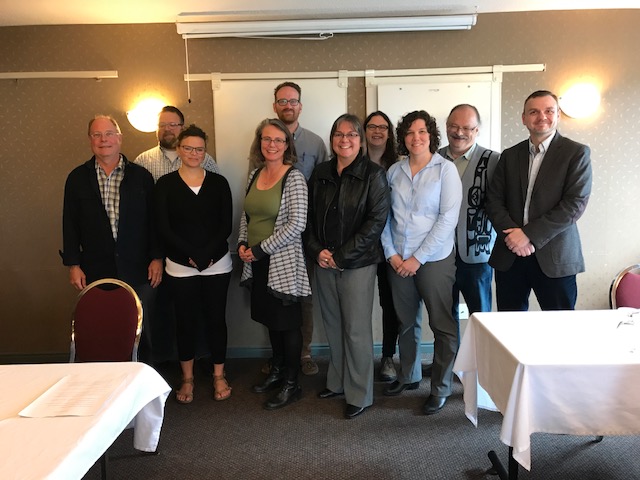UNBC will spearhead a Canada-wide research project looking at how resource development impacts communities.
The team of more than 60 people, including UNBC professors Dr. Henry Harder and Dr. Margot Parkes, Dr. Donald B. Rix BC Leadership Chair for Aboriginal Environmental Health, and Northern Health’s Dr. Sandra Allison, will form the ECHO Network (Environment, Community, Health Observatory). Other teammates are from as far as BC’s Lower Mainland, Alberta, and New Brunswick.
The Canadian Institutes of Health Research (CIHR) has given ECHO $2 million over five years to fund the project, which, as Dr. Parkes says, will encourage more integration and study the impacts of resource development.
“We have a lot to learn about how to work together on these kinds of issues. The aim is not to fix things when they go wrong but to prevent them in the first place.”
.@UNBC will lead national research project addressing health, environment, and community impacts on resource development pic.twitter.com/uPmm709As1
— My Prince George Now (@mypgnow) May 11, 2017
Northern Health Chief MHO and ECHO Co-chair Dr. Sandra Allison says one example is exploring its effects on the local health system.
“When you have large migratory populations they can really impact our health services so we’ve been working really hard with our partners in industry so that they are aware of those impacts through our health systems and mitigate for them.”
Some team members, like Raissa Marks, the Executive Director of the New Brunswick Environmental Network, are “decision-makers.” They’ll leave the research up to the professors, then use those findings to improve the quality of life for people living in communities affected by resource development.
“We can help take that kind of high-level ideas discussions and research questions and that kind of thing and make it relevant to the communities that are facing the problems that they’re facing.”
Locally, this means helping people from all walks of life, like the First Nations communities.
“As First Nations people, our health and wellness is inextricably tied to the land and our territories. Everything is connected; we don’t separate human health from the health of our land and environment. For us, resource development has deep and far-reaching challenges and impacts for our communities, past, present and future,” said Dr. Evan Adams, chief medical officer for the First Nations Health Authority. “This collaboration will facilitate connection, relationship-building, knowledge-sharing, and the generation of new ideas, supporting us to effectively respond to these complex challenges that impact the mental, emotional, spiritual, and physical health and wellness of our people.”
Team members are venturing home in the next few days and will share their research updates as they happen.
Something going on in the Prince George area you think people should know about?
Send us a news tip by emailing [email protected].






